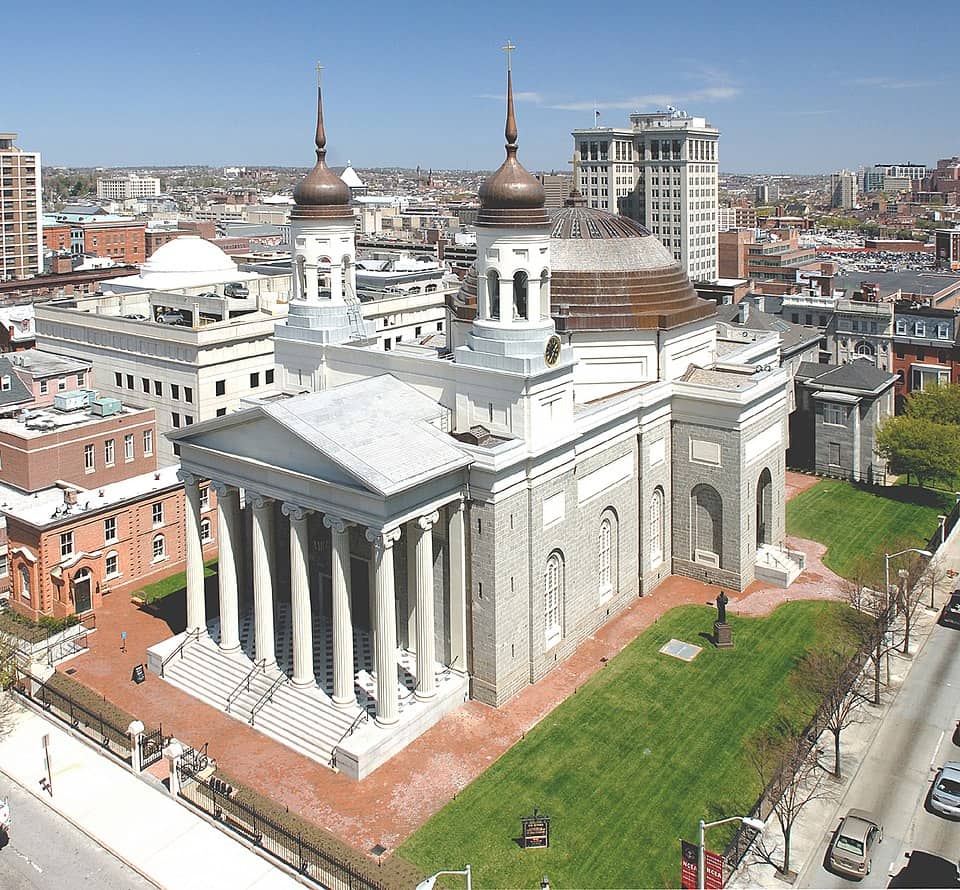Photo: Baltimore Basilica; courtesy attribute.
A lawsuit filed on behalf of child sexual abuse survivors claims that the Archdiocese of Baltimore is using the legal doctrine of charitable immunity to avoid paying victims compensation, CBS News reported yesterday. The filing comes in the wake of a 2023 report by the Maryland Attorney General’s Office, which identified more than 600 children abused by at least 165 priests, teachers, and employees under the supervision of the Catholic Church.
Following the passage of Maryland’s Child Victims Act—which eliminated the statute of limitations for civil claims of child sexual abuse—more than 1,000 claims were filed against the Archdiocese. The Act allows survivors to seek up to $890,000 per claim.
But according to the new lawsuit, the Archdiocese is attempting to invoke charitable immunity, a legal doctrine designed to shield tax-exempt religious and educational organizations from certain civil lawsuits if they lack liability insurance covering the damages.
The lawsuit asks a judge to decide whether the Archdiocese can continue to use charitable immunity as a defense, particularly given that it filed for Chapter 11 bankruptcy just days before the Child Victims Act went into effect.
The plaintiffs argue that paying abuse survivors is a moral and legal obligation of the Church and that invoking charitable immunity runs counter to the organization’s stated mission. “The [Archdiocese of Baltimore] accordingly should not be permitted to raise the defense of charitable immunity from tort liability for so long as the [Archdiocese of Baltimore’s] bankruptcy case remains active,” the lawsuit states.
Several survivors testified during court proceedings, emphasizing the need for financial consequences. “That’s the only thing the church is going to understand,” said survivor Teresa Lancaster. “Hit them where it hurts, in the pocketbook.”
Baltimore Archbishop William Lori has stated that the bankruptcy filing was a strategic move to compensate all survivors equitably. “Chapter 11 reorganization is the best path forward to compensate equitably all victim-survivors, given the Archdiocese’s limited financial resources, which would have otherwise been exhausted on litigation,” Lori said.
In response to the lawsuit, a church spokesperson reaffirmed the Archdiocese’s commitment to providing compensation. “By filing Chapter 11, the Archdiocese is seeking to provide the most orderly process in which victim survivors can be compensated, including from its insurance policies, while maintaining the mission and ministry of the Church.”
However, the spokesperson also expressed surprise at the legal pushback concerning charitable immunity during mediation, stating that the Archdiocese has a long history of providing pastoral care and settlements despite the existence of the immunity doctrine.
As the bankruptcy case proceeds, the court will now determine whether the Archdiocese can continue to claim charitable immunity as a shield from full financial accountability.
If you or someone you love is a survivor of Catholic clergy sexual abuse, you may still have time to take legal action.
Learn more about your rights and find out if you’re eligible for compensation. Visit our Catholic Church Sexual Abuse Lawsuit Guide for a free, confidential case review. You deserve answers—and accountability.




